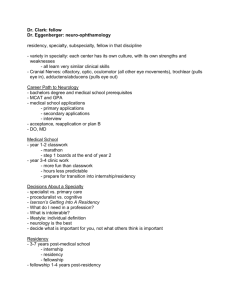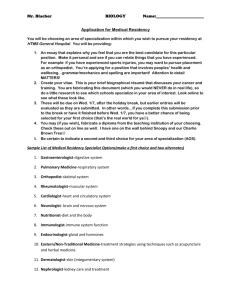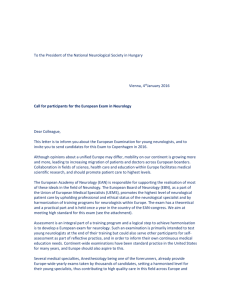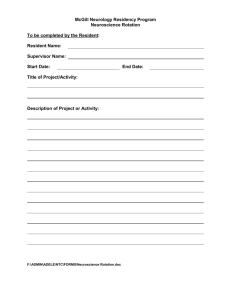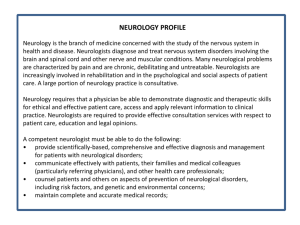There is ongoing debate about how residency training is best
advertisement
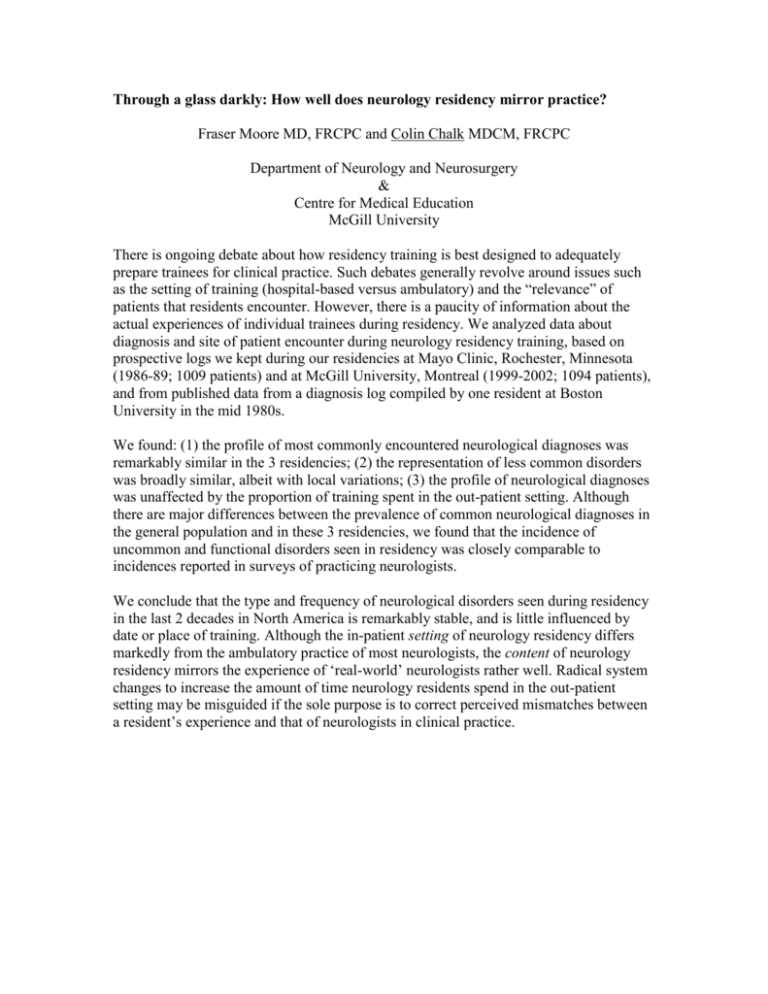
Through a glass darkly: How well does neurology residency mirror practice? Fraser Moore MD, FRCPC and Colin Chalk MDCM, FRCPC Department of Neurology and Neurosurgery & Centre for Medical Education McGill University There is ongoing debate about how residency training is best designed to adequately prepare trainees for clinical practice. Such debates generally revolve around issues such as the setting of training (hospital-based versus ambulatory) and the “relevance” of patients that residents encounter. However, there is a paucity of information about the actual experiences of individual trainees during residency. We analyzed data about diagnosis and site of patient encounter during neurology residency training, based on prospective logs we kept during our residencies at Mayo Clinic, Rochester, Minnesota (1986-89; 1009 patients) and at McGill University, Montreal (1999-2002; 1094 patients), and from published data from a diagnosis log compiled by one resident at Boston University in the mid 1980s. We found: (1) the profile of most commonly encountered neurological diagnoses was remarkably similar in the 3 residencies; (2) the representation of less common disorders was broadly similar, albeit with local variations; (3) the profile of neurological diagnoses was unaffected by the proportion of training spent in the out-patient setting. Although there are major differences between the prevalence of common neurological diagnoses in the general population and in these 3 residencies, we found that the incidence of uncommon and functional disorders seen in residency was closely comparable to incidences reported in surveys of practicing neurologists. We conclude that the type and frequency of neurological disorders seen during residency in the last 2 decades in North America is remarkably stable, and is little influenced by date or place of training. Although the in-patient setting of neurology residency differs markedly from the ambulatory practice of most neurologists, the content of neurology residency mirrors the experience of ‘real-world’ neurologists rather well. Radical system changes to increase the amount of time neurology residents spend in the out-patient setting may be misguided if the sole purpose is to correct perceived mismatches between a resident’s experience and that of neurologists in clinical practice.
